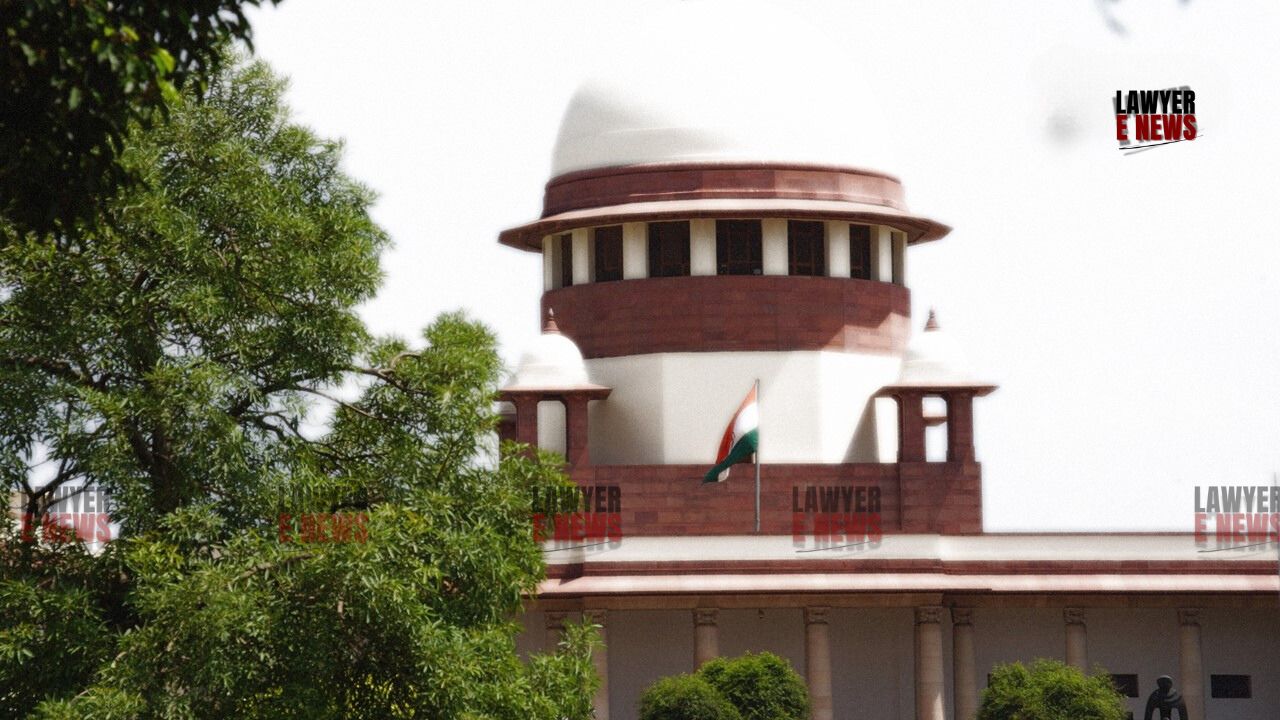-
by Admin
15 February 2026 5:35 AM



Supreme Court of India, in Byappanahalli Prabhakar Reddy Kumar Babu v. The State of Telangana (Criminal Appeal No. 2899 of 2024), quashed criminal proceedings against Byappanahalli Prabhakar Reddy Kumar Babu, who was accused of conspiracy and corruption under Section 120B of the Indian Penal Code (IPC) and Section 12 of the Prevention of Corruption Act, 1988. The case centered on allegations that Babu’s company facilitated the transfer of funds in a quid pro quo arrangement involving shell companies and public officials. However, the Supreme Court found no material evidence directly linking Babu to any criminal conspiracy, and emphasized that his involvement appeared limited to transactions conducted through his company in an official capacity.
The case arose out of a public interest litigation (PIL) before the Andhra Pradesh High Court, which exposed alleged quid pro quo transactions involving high-ranking officials and corporate entities. Babu, who was listed as Accused No. 13, was the Managing Director of M/s Cornerstone Property Investments Pvt. Ltd., a company alleged to have facilitated the transfer of funds on behalf of other accused parties. However, neither Babu’s company nor several intermediary companies involved in the fund transfers were named as accused in the case.
The appellant sought to quash the proceedings, but the Telangana High Court refused, ruling that the allegations were matters to be decided at trial. Aggrieved by this decision, Babu approached the Supreme Court.
The Supreme Court examined several crucial legal points, particularly focusing on the sufficiency of evidence required to implicate Babu in a criminal conspiracy:
Absence of Direct Involvement and Lack of Material Evidence:
The Court observed that there was no substantial evidence directly connecting Babu to the alleged criminal conspiracy or corruption. His role as the Managing Director of a company that facilitated fund transfers did not, by itself, indicate personal involvement or intent to commit a crime.
The Court noted, "There is absolutely no material to implicate the appellant, and if that is the case, continuing the trial against him would amount to a travesty of justice."
Failure to Implicate Necessary Parties:
The Supreme Court pointed out that critical entities in the alleged quid pro quo transactions, such as M/s Gilchrist Investments Pvt. Ltd., M/s Alpha Villas Pvt. Ltd., and M/s Alpha Avenues Pvt. Ltd., were not named as accused. This omission, according to the Court, weakened the prosecution's case against Babu, as these companies were the actual conduits for the funds.
The Court stated, “Without implicating the primary entities involved in the transaction, it was improper to prosecute the appellant individually.”
Protection Under Corporate Representation Doctrine:
Babu argued that he could not be held liable in his personal capacity without also implicating his company, M/s Cornerstone Property Investments Pvt. Ltd., as an accused. Citing precedents like Sunil Bharti Mittal v. CBI and SK Alagh v. State of UP, the Court accepted this argument, stating that corporate actions should not automatically lead to personal liability unless direct evidence of personal involvement exists.
Prosecution’s Focus on Other Key Accused:
The prosecution primarily focused on Accused Nos. 1, 3, and 14 as the principal actors in the conspiracy, with accusations of quid pro quo transactions involving bribes and misuse of public office. The Court noted that Babu’s involvement was minor and peripheral, without evidence of any personal gain or direct participation in the alleged conspiracy.
Travesty of Justice in Proceeding Without Sufficient Evidence:
The Court emphasized that proceeding with a trial in the absence of adequate evidence against Babu would be unjust and an abuse of process. It remarked that forcing Babu to stand trial on insufficient grounds would be “a travesty of justice,” highlighting the importance of material evidence in upholding fair trial standards.
Details of the Judgment
The Supreme Court’s judgment elaborated on its reasons for quashing the proceedings against Babu:
No Personal Benefit or Direct Involvement:
The Court found no evidence of personal benefit accruing to Babu from the transactions. The funds were routed through his company, but there was no material to suggest that he was "hand-in-glove" with the other accused parties in any criminal endeavor.
Corporate Shield Not Lifted:
Since Babu’s company was not named as an accused, the Court held that it was improper to prosecute him personally. The prosecution’s failure to bring Babu’s company or the intermediary companies into the case was critical in the Court’s decision to quash the charges against him.
Distinction Between Company Actions and Individual Liability:
The Court reaffirmed the principle that actions taken by individuals in their corporate capacity should not automatically translate to personal criminal liability. This doctrine was applied here to protect Babu from being held responsible for actions undertaken by his company without direct evidence of his individual involvement.
Proceedings Against Other Accused to Continue:
The Supreme Court clarified that its decision to quash the proceedings against Babu was specific to his role and did not impact the ongoing trial against the primary accused. The Court allowed the prosecution to proceed independently against the other accused, including Accused Nos. 1, 3, and 14, who were alleged to be the main conspirators.
The Supreme Court allowed Babu’s appeal, setting aside the High Court’s judgment and quashing the criminal proceedings against him. The Court reiterated that allegations of conspiracy and corruption must be backed by concrete evidence, especially when individuals are being implicated due to actions performed in a corporate capacity.
The judgment underscores the Court's cautious approach in cases involving allegations of conspiracy, emphasizing the necessity for clear and direct evidence before subjecting individuals to prolonged criminal trials. The ruling also reinforces the distinction between corporate actions and personal liability, a significant consideration in cases involving corporate executives.
Date of Decision: October 3, 2024
Byappanahalli Prabhakar Reddy Kumar Babu v. The State of Telangana,
